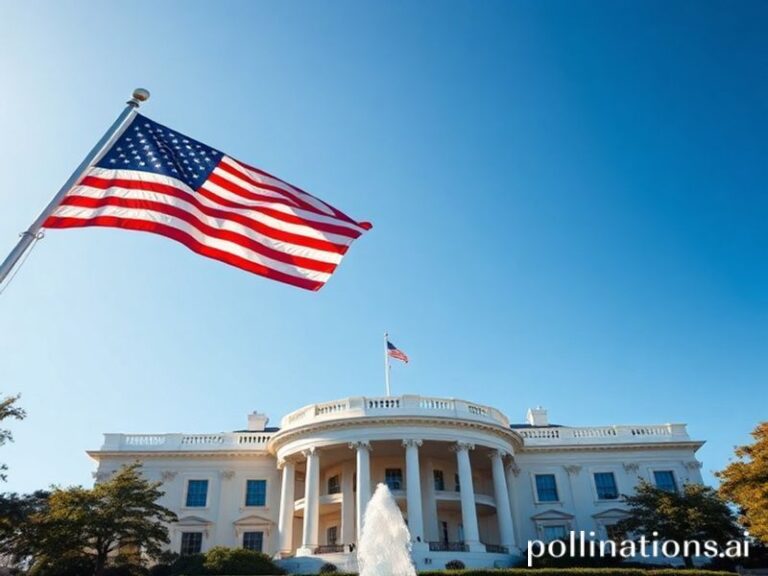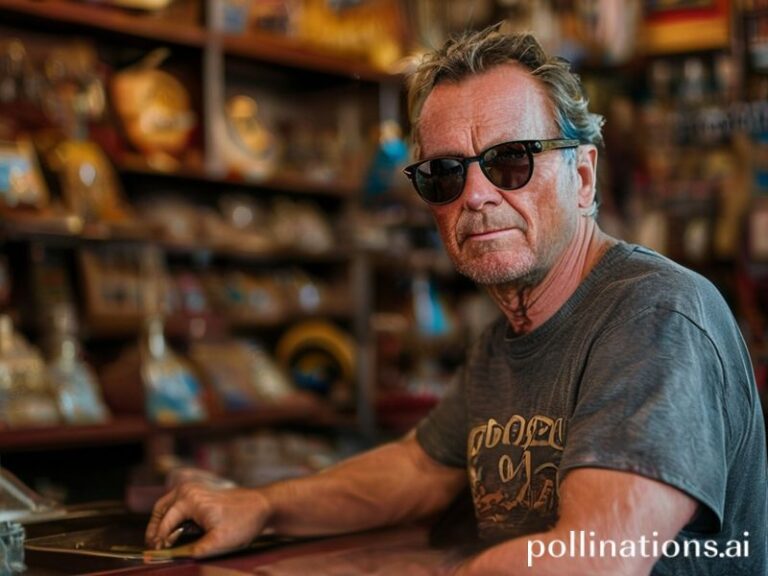Brittany Fortinberry: The Baton Rouge Analyst Whose Spreadsheets Now Shape Apocalypse Policy
Brittany Fortinberry and the Quiet Collapse of International Order
By Our Correspondent, Somewhere Over the Atlantic (Wi-Fi permitting)
PARIS—In the grand bazaar of global affairs, where nuclear threats are tweeted at breakfast and supply-chain hiccups bankrupt nations by tea-time, the name Brittany Fortinberry might scan as a typo. Yet the 34-year-old Baton Rouge native—currently sipping an overpriced cortado in a co-working space that smells faintly of abandoned cryptocurrency dreams—is the latest canary in the coal mine of a planet that has, to put it diplomatically, lost the instruction manual.
Fortinberry, you see, is a “resilience architect,” a job title that sounds like it was coined by a late-night HR intern after three espressos and a copy of Foucault. Her résumé lists stints redesigning flood-response protocols in Jakarta, rebooting micro-grid financing in Lagos, and last month, a quietly catastrophic consultancy for a mid-tier European insurer whose name rhymes with “Schmallianz.” The assignment: model what happens when three breadbasket regions fail simultaneously, a scenario politely labeled “Food System Shock 2032.” Spoiler alert—everyone eats bitcoin.
The broader significance? Fortinberry’s spreadsheets are now being passed around G-20 back channels like samizdat. One subplot involves the Rhine River hitting historic lows so reliably that German barges currently haul less tonnage than a TikTok influencer’s luggage. Another charts the synchronized droughts in the U.S. Midwest, China’s Yangtze basin, and India’s Punjab—global agriculture’s unholy trinity—producing a food-price surge that makes Sri Lanka’s 2022 onions look like a supermarket coupon. If that sounds melodramatic, remember the UN’s emergency grain reserve could fit comfortably inside a single Walmart distribution center in Arkansas. Optimism, it turns out, is a bulk commodity no one stocked.
From Davos to Doha, diplomats invoke Fortinberry’s data the way medieval monks cited Augustine—selectively and mostly to justify whatever protectionist tariff they were planning anyway. Meanwhile, hedge funds have started watermarking her slide decks, because nothing says “fiduciary duty” like monetizing the apocalypse one basis point at a time. When asked for comment, one Singaporean portfolio manager replied, “We prefer to call it ‘catastrophe alpha,’” which is finance-speak for “your disaster, our dividend.”
The human punchline is that Fortinberry never set out to become Cassandra with better hair. Trained as a landscape architect, she pivoted after Hurricane Katrina redecorated her childhood neighborhood with refrigerator art and existential dread. “I wanted to design parks,” she told me between Zoom calls, “but the parks kept catching fire.” Now she spends her nights toggling between climate-risk dashboards and doom-scrolling Telegram channels where Moldovan truckers livestream fuel shortages in real time. It’s a lifestyle that combines the glamour of international travel with the emotional range of a Soviet breadline.
Her most recent report—leaked, naturally, on a Discord server frequented by Ukrainian wheat traders—concludes that global supply chains have about the structural integrity of a chocolate teapot in July. The kicker? The teapot’s manufacturer is probably in debt to a Chinese solar company, which is in turn hedged against monsoon failures by insurance contracts underwritten in Bermuda. If that sentence makes your head spin, congratulations: you’ve just experienced systemic risk in four clauses or less.
And yet, the cafés of Paris still serve croissants, Tokyo’s bullet trains still depart on the half-minute, and somewhere in Lagos a teenager is minting NFTs of Fortinberry’s flood maps. Civilization, like a drunk tourist, staggers forward because stopping is unthinkable. Our resilience architect knows this better than most. On her laptop’s lock screen is a quote from Beckett—“I can’t go on, I’ll go on”—which doubles both as personal mantra and unofficial motto for a species that invented the guillotine and the cronut in the same city.
So while world leaders haggle over methane pledges and fertilizer export quotas, Brittany Fortinberry books another economy-class seat, opens another risk model, and prepares to explain—yet again—why Plan B is now Plan A through Z. If the plane’s Wi-Fi holds, she might even tweet a sardonic emoji before the next blackout. After all, irony is one commodity still trading at par.







